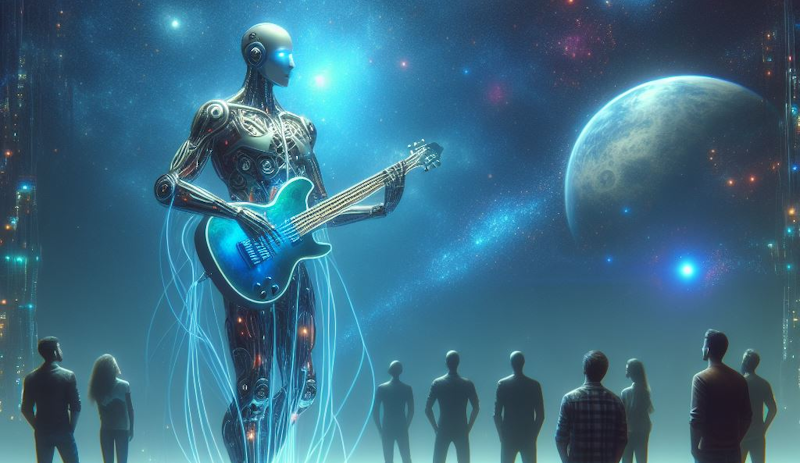Top artists’ expensive pre-release tracks come from AI
A wave of fake tracks pretending to be from the world’s biggest acts are scamming people out of thousands of dollars.
Oh, AI. You and the music industry just can’t along, huh? The latest issue of bad musical action from AI is the market of “soundalike” tracks replicating top artists and tricking unwitting fans into falling for what seems like song leaks.
According to Universal Music Group (UMG), these fake tracks are going for as much as $30,000. Snippets of AI-generated content using a recreation of artists’ voices are posted online, attempting to trick people into paying money for a full version of the track under the false impression that it’s a leak of an artists’ upcoming music.
UMG’s Vice President of global content protection, Graeme Grant said: “Believing these tracks to be authentic, users often engage in ‘group buys’, pooling their resources to meet the fraudster’s inflated asking price, which can range from $5,000 to $30,000.
“The users are often unaware that the track in question was not created by the artist, but rather by AI technology.” Grant’s statements come from UMG’s contribution to the World Intellectual Property Organization (WIPO).
Of course, AI is simply the tool here. The bad actors are the humans using the tools to fool unwitting music fans and grab the cash. The act of replicating artist’s voice and musical likeness itself has become complex.
Senators in the US are pushing the No Fakes Act, a bill allowing legal repercussions for the replication of someone’s likeness without consent. Meanwhile, YouTube have begun testing a tool in collaboration with popular artists to allow users to create AI-generated snippets of music using their musical likeness.
The benefit of YouTube’s Dream Track tool is that they can immediately distinguish it as an AI track, having gone through their own systems. However, it makes the issue more complex than simply “recreating an artists voice is bad”. Consent is key, but the internet is the wild west and it’s an impossible shootout to regain full control.
Graeme Grant revealed that they had seen a 175% rise in AI generated uploads that broached their copyrighted content in the last year. He revealed: “To date we have detected and removed over 200,000 listings of counterfeit / unauthorized merchandise valued at over $45+ million.”
Whilst lawmakers scrabble to catch up to the progress of AI in law, with discussions taking place in the UK and new legislation launched in the EU. Grant however believes that copyright law doesn’t need to change.
He reveals: “In general, UMG is of the opinion that current copyright legislation, if interpreted, applied, and enforced correctly does not need to change. In selected territories, however, additional protection of personal rights (i.e., voice and likeness) may be necessary.”
